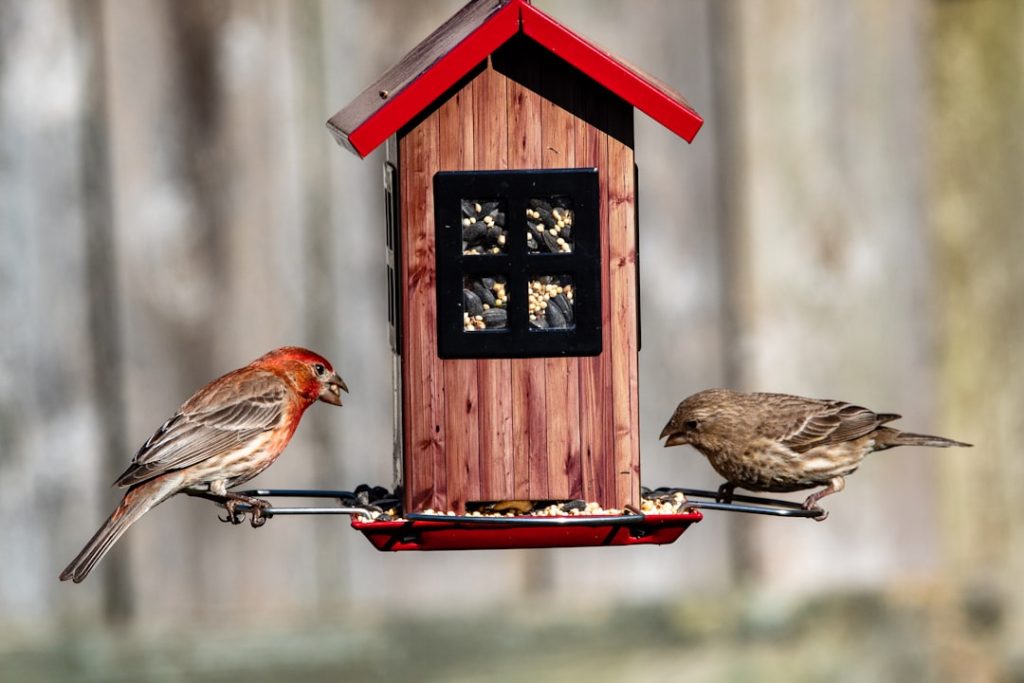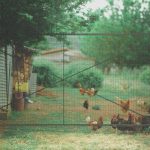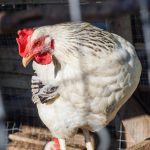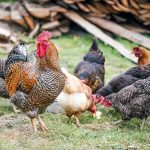When selecting chicken breeds for a backyard flock, several factors should be considered. Climate is a crucial aspect, as some breeds are better adapted to cold weather, while others thrive in warmer conditions. The intended purpose of the flock is also important, whether it’s for egg production, meat production, or as pets.
Breeds like Leghorns and Rhode Island Reds are known for high egg production, while Cornish Cross and Freedom Rangers are popular for meat production. Temperament is another significant factor, especially for families with children or other pets. Some breeds are more docile and friendly, while others can be skittish or aggressive.
The available space is also a key consideration. Smaller breeds like Bantams, including Silkies and Sebrights, are suitable for urban or suburban settings with limited space. Larger breeds such as Orpingtons or Australorps are better suited for properties with ample space for free-ranging.
For those interested in breeding, certain breeds like Cochins and Orpingtons are known for their broodiness and ability to hatch and raise chicks effectively. By carefully considering these factors, including climate, purpose, temperament, space requirements, and breeding capabilities, one can select chicken breeds that best suit their specific needs and circumstances.
Table of Contents
Key Takeaways
- Consider the climate, space, and purpose of raising chickens when choosing the right breed for your flock.
- Provide a secure and spacious coop and run setup to ensure the safety and well-being of your chickens.
- Ensure a balanced diet for your chickens, including a mix of grains, protein, and fresh greens.
- Regularly monitor the health of your chickens and maintain good hygiene practices to prevent diseases and parasites.
- Implement proper egg collection and storage practices to ensure the quality and safety of the eggs.
Coop and Run Setup
Size and Space Requirements
The general rule of thumb is to allow at least 2-3 square feet of space per chicken inside the coop, and 8-10 square feet per chicken in the outdoor run. This will ensure that your chickens have plenty of room to move around and engage in natural behaviors like scratching and dust bathing.
Ventilation and Airflow
In addition to size, ventilation is also crucial for a healthy coop environment. Good airflow will help prevent moisture buildup and reduce the risk of respiratory issues in your flock. This can be achieved through windows, vents, or even a ridge vent in the roof.
Predator Protection and Enrichment
When it comes to predator protection, it’s essential to secure the coop with sturdy hardware cloth or wire mesh to prevent entry from predators such as raccoons, foxes, and rats. Additionally, burying wire mesh around the perimeter of the run can help deter digging predators like weasels and dogs. Providing enrichment such as perches, dust bathing areas, and access to fresh grass and insects can help keep your chickens healthy and happy.
Feeding and Nutrition

Proper feeding and nutrition are essential for maintaining a healthy and productive backyard flock. When it comes to feeding chickens, there are several options to consider, including commercial feed, kitchen scraps, and foraging opportunities. Commercial feed is formulated to provide all the essential nutrients that chickens need to thrive, including protein, carbohydrates, vitamins, and minerals.
There are different types of commercial feed available, including starter feed for chicks, grower feed for young chickens, layer feed for hens producing eggs, and broiler feed for meat-producing chickens. It’s important to choose a feed that is appropriate for the age and purpose of your flock. In addition to commercial feed, many chicken keepers also supplement their flock’s diet with kitchen scraps and garden surplus.
This can include fruits, vegetables, grains, and protein sources like mealworms or kitchen scraps. It’s important to avoid feeding chickens foods that are toxic to them, such as avocado pits or raw beans. Providing access to fresh grass and insects through free-ranging or supervised outdoor time can also help supplement your flock’s diet with natural sources of protein and nutrients.
It’s important to provide access to clean water at all times, as chickens require water for digestion, egg production, and overall health. Waterers should be kept clean and free of debris to prevent contamination and disease transmission. Additionally, providing access to grit (small rocks or coarse sand) can help chickens grind their food in their gizzards for proper digestion.
In conclusion, proper feeding and nutrition are essential for maintaining a healthy and productive backyard flock. By providing a balanced diet of commercial feed, kitchen scraps, and natural foraging opportunities, along with access to clean water and grit, you can ensure that your chickens receive all the essential nutrients they need to thrive.
Health and Hygiene
Maintaining good health and hygiene practices is essential for keeping your backyard flock happy and productive. Regular health checks can help identify any potential issues early on and prevent the spread of disease within your flock. When it comes to health checks, it’s important to monitor your chickens’ overall appearance and behavior.
Signs of good health include bright eyes, clean feathers, alertness, and an active appetite. On the other hand, signs of illness or distress can include lethargy, drooping wings, abnormal droppings, or changes in behavior. In addition to regular health checks, maintaining a clean coop environment is crucial for preventing disease and parasites.
This includes regularly cleaning out bedding material, removing droppings from roosting bars and nesting boxes, and providing adequate ventilation to reduce moisture buildup. It’s also important to regularly inspect your flock for signs of parasites such as lice or mites. Dust bathing areas with diatomaceous earth or providing access to sand baths can help control external parasites.
Another important aspect of maintaining good hygiene is practicing biosecurity measures to prevent the introduction of disease into your flock. This includes quarantining new birds before introducing them to your existing flock, limiting contact with wild birds or other poultry flocks, and practicing good hand hygiene when handling your chickens or their equipment. In conclusion, maintaining good health and hygiene practices is essential for keeping your backyard flock healthy and productive.
By conducting regular health checks, maintaining a clean coop environment, controlling parasites, and practicing biosecurity measures, you can help ensure that your chickens stay happy and healthy.
Egg Production and Collection
Egg production is one of the main reasons many people choose to raise backyard chickens. To maximize egg production in your flock, there are several factors to consider. First and foremost, providing a balanced diet with adequate protein levels is crucial for ensuring that your hens have the nutrients they need to lay eggs consistently.
Layer feed is specifically formulated with higher levels of calcium and other nutrients needed for egg production. In addition to nutrition, providing a comfortable and stress-free environment can also help encourage consistent egg laying in your flock. This includes ensuring that your hens have access to clean nesting boxes filled with soft bedding material where they can lay their eggs in peace.
It’s also important to provide adequate roosting space inside the coop so that your hens feel secure at night. When it comes to collecting eggs from your flock, it’s important to check nesting boxes regularly to prevent eggs from piling up or getting broken. Collecting eggs promptly can also help prevent hens from developing a habit of eating their own eggs.
It’s important to handle eggs gently when collecting them to prevent cracking or contamination. Eggs should be stored in a cool place away from direct sunlight until they are ready to be consumed. In conclusion, maximizing egg production in your backyard flock involves providing a balanced diet with adequate protein levels, creating a comfortable environment for laying eggs, and collecting eggs promptly and gently.
By taking these factors into consideration, you can help ensure that your hens lay eggs consistently throughout their laying cycle.
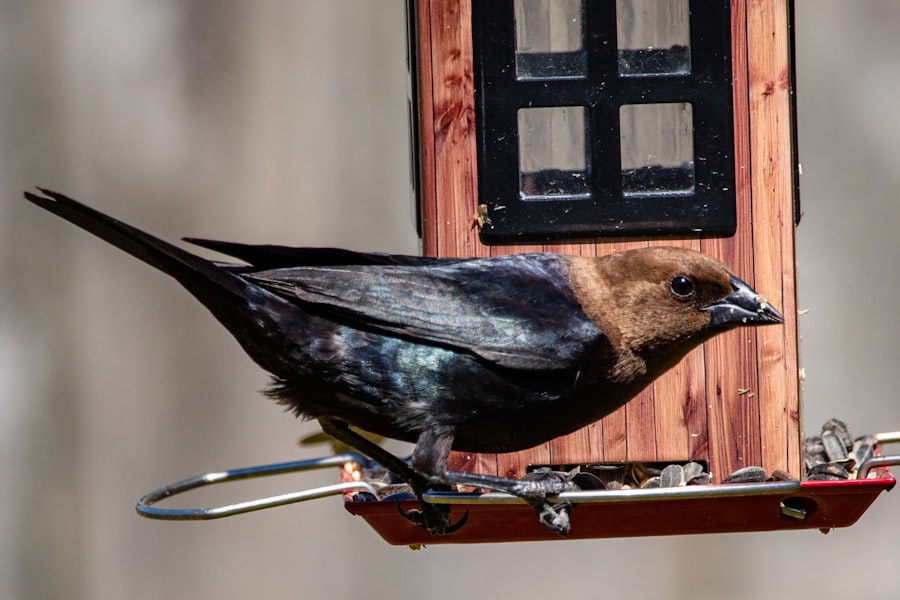
Approaching and Handling Chickens
When handling chickens, it’s crucial to approach them calmly and confidently while speaking softly to reassure them. It’s best to pick them up by gently scooping them up from underneath rather than grabbing them from above, which can startle them. It’s also important to support their body securely while holding them to prevent flapping or struggling.
Socializing with your chickens can also involve spending time with them in their outdoor run or free-ranging area while observing their natural behaviors like scratching for insects or dust bathing. Providing treats like mealworms or kitchen scraps can help encourage positive interactions with your flock.
In addition to handling and socializing with adult chickens, it’s also important to socialize chicks from a young age by spending time with them regularly while they are still in the brooder or coop. This can help them become more comfortable around humans as they grow up.
By handling and socializing with your backyard flock, you can build trust with your chickens and create positive interactions with them as pets or as part of a sustainable lifestyle.
Predation and Security
Protecting your backyard flock from predation is crucial for ensuring their safety and well-being. There are several strategies you can implement to deter predators from targeting your chickens. Firstly, securing the coop with sturdy hardware cloth or wire mesh is essential for preventing entry from predators such as raccoons, foxes, rats, or snakes.
It’s important to inspect the coop regularly for any signs of wear or damage that could compromise its security. In addition to securing the coop itself, it’s also important to secure the outdoor run with strong fencing buried at least 12 inches underground to prevent digging predators like weasels or dogs from gaining access. Providing adequate lighting around the coop area can also help deter nocturnal predators like raccoons or owls by making it more difficult for them to approach undetected.
Finally, using motion-activated deterrents such as lights or sound devices can help startle potential predators away from the coop area. In conclusion, protecting your backyard flock from predation involves securing the coop and outdoor run with sturdy fencing and wire mesh while implementing deterrents such as lighting or sound devices to discourage potential predators from targeting your chickens.
If you’re interested in keeping a small flock of chickens, you may also want to consider raising guinea fowl. These unique birds are known for their pest control abilities and delicious eggs. To learn more about when guinea fowl lay eggs, check out this informative article on Poultry Wizard.
FAQs
What are the benefits of keeping a small flock of chickens?
Keeping a small flock of chickens can provide a sustainable source of fresh eggs, natural pest control for your garden, and a source of organic fertilizer for your plants.
How much space do chickens need?
Chickens need at least 2-3 square feet of space per bird in the coop, and at least 8-10 square feet of outdoor space per bird for foraging and exercise.
What do chickens eat?
Chickens eat a diet of commercial chicken feed, supplemented with kitchen scraps, grains, and greens. They also require access to grit and calcium for proper digestion and egg production.
What are some common health issues in chickens?
Common health issues in chickens include respiratory infections, parasites, and egg-laying problems. It’s important to provide proper nutrition, clean living conditions, and regular health checks to prevent these issues.
Do chickens require any special care during the winter?
Chickens require protection from cold drafts, access to fresh water that doesn’t freeze, and extra food to maintain their body heat during the winter months. Coops should also be insulated and free from moisture to prevent frostbite.
Meet Walter, the feathered-friend fanatic of Florida! Nestled in the sunshine state, Walter struts through life with his feathered companions, clucking his way to happiness. With a coop that’s fancier than a five-star hotel, he’s the Don Juan of the chicken world. When he’s not teaching his hens to do the cha-cha, you’ll find him in a heated debate with his prized rooster, Sir Clucks-a-Lot. Walter’s poultry passion is no yolk; he’s the sunny-side-up guy you never knew you needed in your flock of friends!

